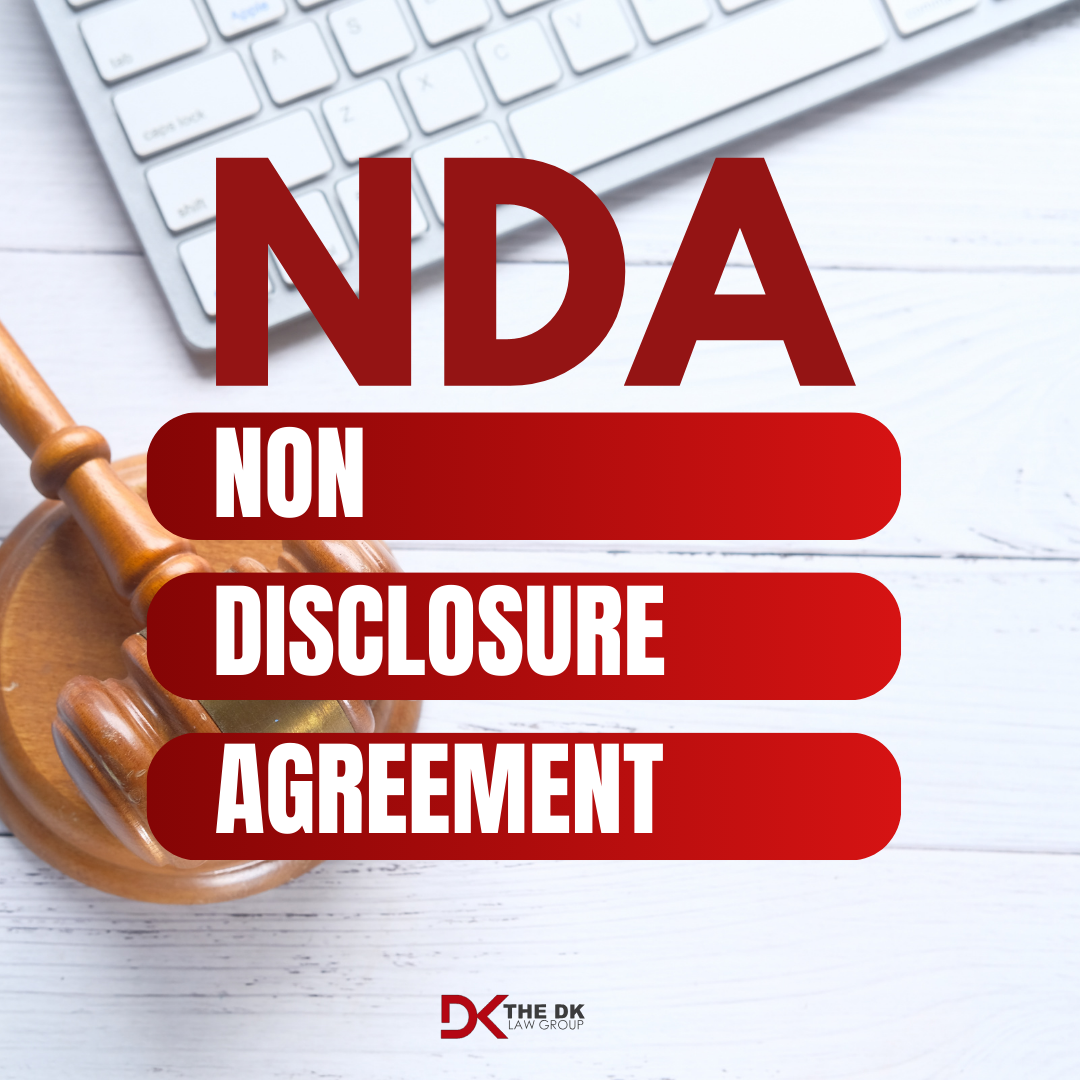
Understanding Non-Disclosure Agreements (NDAs) for Startups: Your Essential Guide to Protecting Your Ideas
In the fast-paced, competitive world of startups, your ideas, innovations, and proprietary information are your most valuable assets. They are the "secret sauce" that gives you an edge, attracts investors, and ultimately defines your success. But how do you safeguard these crucial secrets when you need to share them with employees, partners, investors, or even potential customers?
Enter the Non-Disclosure Agreement (NDA) – a fundamental legal tool that every startup founder needs to understand and utilize effectively. For many, legal jargon can be intimidating, but understanding NDAs doesn’t have to be. This comprehensive guide will break down everything you need to know about NDAs, specifically tailored for the unique challenges and opportunities faced by startups.
By the end of this article, you’ll feel confident in knowing what an NDA is, why it’s vital for your startup’s protection, when to use one, and what to look out for.
What Exactly is a Non-Disclosure Agreement (NDA)?
At its core, a Non-Disclosure Agreement (NDA), also known as a Confidentiality Agreement (CA), is a legally binding contract between two or more parties. In this agreement, one or more parties agree not to disclose confidential information that is shared with them. Think of it as a promise, backed by law, to keep secrets.
In simpler terms: An NDA is a formal promise that if you share your private business information (like your brilliant new app idea, your customer list, or your unique marketing strategy) with someone, they are legally bound not to share it with others or use it for their own benefit.
The primary purpose of an NDA is to:
- Protect confidential information: This includes trade secrets, business plans, financial data, product designs, marketing strategies, customer lists, and anything else that gives your startup a competitive advantage.
- Establish trust: It sets clear boundaries and expectations, fostering a secure environment for discussions and collaborations.
- Provide legal recourse: If the agreement is breached (i.e., someone leaks your secrets), the NDA gives you a legal basis to pursue damages or injunctions to prevent further harm.
Why Are NDAs Crucial for Startups?
For established corporations, protecting information is standard practice. For startups, it’s often a matter of survival. Here’s why NDAs are not just a "nice-to-have" but an absolute necessity for your burgeoning business:
-
Protecting Your "Secret Sauce" and Innovation:
- Your startup’s value often lies in its unique idea, technology, or business model. Without an NDA, sharing these details, even in early conversations, could mean someone else taking your idea and running with it, leaving you with nothing.
- It safeguards your Intellectual Property (IP) before it’s formally protected by patents, trademarks, or copyrights, which can be a lengthy and expensive process.
-
Investor Pitches and Funding Rounds:
- When you’re seeking investment, you’ll need to reveal sensitive information about your business, including financial projections, technology roadmaps, and growth strategies. NDAs ensure that these details remain confidential, even if an investment doesn’t materialize.
- Important Note: While most individual investors and small VCs might sign an NDA, many larger, reputable Venture Capital firms and Angel Investors have a policy not to sign NDAs before initial pitches. They see so many ideas that signing an NDA for each would be impractical and could create legal liabilities if they later invest in a similar idea. In these cases, you might need to share just enough to pique their interest without revealing your absolute core secrets until a more serious due diligence phase.
-
Hiring Employees and Contractors:
- Your team members will have access to a wealth of proprietary information. An NDA ensures that they understand their obligation to keep company secrets, even after they leave your employment.
- This is especially important for developers, designers, and strategists who are intimately involved with your core product or service.
-
Collaborating with Partners and Vendors:
- Whether you’re working with a manufacturer, a marketing agency, a software developer, or a strategic partner, you’ll likely share sensitive operational or technical data. An NDA protects these exchanges.
-
Mergers, Acquisitions, and Due Diligence:
- If your startup is being considered for acquisition, potential buyers will need to dive deep into your company’s financials, technology, and operations. NDAs are critical during this intensive "due diligence" phase to protect sensitive information shared with potential acquirers.
Key Components of an Effective NDA: What’s Inside?
While NDAs can vary, most well-drafted agreements contain several standard clauses. Understanding these components will help you know what you’re signing or asking others to sign.
-
Parties Involved:
- Who is the Disclosing Party? This is your startup, the entity revealing the confidential information.
- Who is the Receiving Party? This is the individual or entity who will receive the information and is obligated to keep it secret (e.g., an employee, an investor, a partner).
-
Definition of Confidential Information:
- This is the heart of the NDA. It clearly defines what information is considered confidential and therefore protected by the agreement.
- Examples: Trade secrets, customer lists, business plans, financial data, marketing strategies, product designs, software code, proprietary algorithms, research data, unreleased product features, manufacturing processes, employee data, etc.
- It’s crucial to be specific but also broad enough to cover unforeseen types of information. Often, it will state that any information marked "Confidential" or disclosed orally and then summarized in writing will be covered.
-
Obligations of the Receiving Party:
- This section outlines what the receiving party must do and must not do with the confidential information.
- Typical obligations include:
- Using the information only for the specified purpose (e.g., evaluating a potential investment, developing a specific product feature).
- Keeping the information strictly confidential.
- Not disclosing the information to any third parties without written consent from the disclosing party.
- Taking reasonable measures to protect the information (e.g., keeping it in a secure location, using strong passwords).
-
Exclusions from Confidential Information:
- Just as important as defining what is confidential is defining what isn’t. These are types of information that the receiving party is not obligated to keep secret.
- Common exclusions include:
- Information that is already publicly known or becomes publicly known without a breach of the NDA.
- Information that the receiving party already possessed before the NDA was signed.
- Information that the receiving party obtained from a third party who had the right to disclose it.
- Information that the receiving party independently developed without using the confidential information.
- Information required to be disclosed by law or court order (though typically, the receiving party must notify the disclosing party beforehand).
-
Term/Duration of the Agreement:
- This specifies how long the NDA remains in effect. It can be for a fixed period (e.g., 2 years, 5 years) or perpetually for certain types of information (like trade secrets, which are protected indefinitely as long as they remain secret).
- For startups, you’ll often see a term of 2-5 years, with trade secret clauses often lasting longer.
-
Return or Destruction of Information:
- This clause dictates what happens to the confidential information once the agreement or relationship ends.
- Typically, the receiving party must either return all physical and electronic copies of the confidential information or destroy them and certify that they have done so.
-
Governing Law and Jurisdiction:
- This specifies which state’s laws will govern the NDA and where any legal disputes would be resolved (e.g., "This Agreement shall be governed by the laws of the State of Delaware"). This is important for clarity and enforceability.
-
Remedies for Breach:
- This section outlines the consequences if the receiving party violates the terms of the NDA.
- It often states that a breach could cause irreparable harm and that the disclosing party may seek injunctive relief (a court order to stop the disclosure) in addition to monetary damages.
Types of NDAs: Unilateral vs. Mutual
NDAs primarily come in two forms:
-
Unilateral (One-Way) NDA:
- Purpose: Used when only one party is disclosing confidential information to another party.
- Example: Your startup (Disclosing Party) is sharing its product designs with a potential manufacturer (Receiving Party). The manufacturer isn’t sharing their confidential information with you.
- Common Use Cases: Employee agreements, contractor agreements, preliminary investor pitches where you’re only sharing your ideas.
-
Mutual (Two-Way) NDA:
- Purpose: Used when both parties will be sharing confidential information with each other.
- Example: Your startup is exploring a joint venture with another company. Both parties will need to share sensitive business strategies and financial data to assess the collaboration.
- Common Use Cases: Strategic partnerships, mergers and acquisitions, collaborations between companies, some advanced due diligence stages with investors.
For startups, you will likely use both types at different stages of your growth.
When Should a Startup Use an NDA? Practical Scenarios
Knowing what an NDA is and why it’s important is one thing; knowing when to deploy one is another. Here are common scenarios where a startup should consider using an NDA:
- Before Pitching to Investors (with caveats):
- For individual angel investors or smaller funds, an NDA can provide comfort.
- For larger VCs, be prepared for them to decline signing one initially. Focus on sharing just enough to get them interested without revealing your entire "secret sauce" until they’re ready for more serious due diligence.
- When Hiring Your First Employees or Key Team Members:
- Crucial for anyone who will have access to your core technology, customer lists, or strategic plans. This is often part of their employment agreement.
- Before Engaging Freelancers or Contractors:
- If you’re hiring a developer, designer, marketing consultant, or any contractor who will be exposed to your sensitive data or ideas, an NDA is a must.
- Before Collaborating with Partners or Vendors:
- Whether it’s a manufacturing partner, a software development firm, or a co-marketing partner, ensure an NDA is in place before sharing any operational or strategic information.
- During Due Diligence for Mergers & Acquisitions:
- If your startup is being considered for an acquisition, a robust NDA (usually mutual) is essential before opening up your books and internal operations to a potential buyer.
- When Testing or Piloting with Early Customers (if sensitive data is involved):
- If your product involves sharing or collecting highly sensitive user data, an NDA might be appropriate with beta testers or pilot customers.
- Before Disclosing Trade Secrets for Licensing or Sales:
- If you plan to license your technology or sell your intellectual property, an NDA must precede any detailed discussions.
Common NDA Mistakes Startups Make (and How to Avoid Them)
While NDAs are powerful tools, they are not foolproof. Many startups make common errors that can undermine their effectiveness.
-
Over-Reliance on NDAs:
- Mistake: Believing an NDA is an impenetrable shield that will protect every idea.
- Reality: NDAs are legal documents, but they don’t prevent someone from stealing your idea; they only give you a legal recourse after it happens. Enforcement can be costly and time-consuming.
- Solution: NDAs are part of your protection strategy, not the only part. Focus on speed to market, building a strong brand, securing patents/trademarks, and fostering a culture of trust.
-
Using Generic Templates Without Review:
- Mistake: Copy-pasting an NDA template found online without understanding its clauses or customizing it.
- Reality: Generic templates might not cover your specific needs, might be unenforceable in your jurisdiction, or might miss critical clauses (like specific definitions of confidential information).
- Solution: Always have an experienced lawyer review and customize any NDA template you intend to use.
-
Not Clearly Defining Confidential Information:
- Mistake: Using vague language like "all business information" in the definition section.
- Reality: If the definition is too broad or too vague, it can be difficult to prove a breach or may even be deemed unenforceable by a court.
- Solution: Be specific with examples of what constitutes confidential information, but also include a general catch-all clause. Make sure to mark physical documents and digital files as "Confidential" where appropriate.
-
Not Enforcing the NDA:
- Mistake: Having an NDA but doing nothing when it’s clearly breached.
- Reality: If you don’t enforce your agreements, they lose their deterrent power.
- Solution: Take breaches seriously. Consult with your legal counsel immediately to understand your options and pursue appropriate action.
-
Asking for an NDA Too Early or Too Late:
- Mistake: Demanding an NDA before revealing anything, or sharing too much information before even mentioning an NDA.
- Reality: Asking for an NDA for a very brief, high-level pitch can put off investors or partners. Waiting until after you’ve disclosed your most valuable secrets is too late.
- Solution: Strike a balance. For initial pitches, share enough to generate interest without giving away your "secret sauce." Introduce the NDA when substantive, detailed discussions are necessary.
-
Not Understanding What You’re Signing (as the Receiving Party):
- Mistake: Rushing to sign an NDA presented to you without reading or understanding its terms.
- Reality: If you sign a restrictive NDA, it could limit your future business activities, even if unrelated to the current discussion.
- Solution: Always read NDAs carefully. If you have concerns, negotiate the terms or seek legal advice. Don’t sign anything you don’t fully comprehend.
Beyond the NDA: A Holistic Approach to Protection
While NDAs are vital, they are just one piece of your startup’s protection puzzle. A truly robust strategy involves multiple layers:
- Build Trust and Relationships: A strong business relationship built on trust can sometimes be more effective than a legal document in preventing breaches.
- Layered Security Measures: Implement strong digital security protocols, restrict access to sensitive information on a "need-to-know" basis, and use physical security for tangible assets.
- Intellectual Property Strategy:
- Patents: Protect novel inventions, processes, and designs.
- Trademarks: Protect your brand name, logo, and slogans.
- Copyrights: Protect original works of authorship (e.g., software code, website content, marketing materials).
- Employee Training and Culture: Educate your team about the importance of confidentiality and make it part of your company culture.
- Speed to Market: Sometimes, the best protection is to execute your idea quickly and establish market dominance before competitors can catch up.
The Golden Rule: Consult Legal Counsel
This article provides a comprehensive overview of NDAs for startups, but it is not legal advice. The specific laws regarding contracts and confidentiality can vary significantly by jurisdiction (state and country).
Always, always, always consult with an experienced attorney specializing in startup law or intellectual property before drafting, signing, or enforcing any Non-Disclosure Agreement. A lawyer can:
- Customize an NDA to fit your specific needs and industry.
- Ensure the NDA is legally sound and enforceable in your jurisdiction.
- Advise you on the risks and implications of particular clauses.
- Guide you on the best course of action if an NDA is breached.
Investing in proper legal counsel for your NDAs now can save your startup immense time, money, and heartache down the road.
Conclusion
Non-Disclosure Agreements are an indispensable tool in the startup world. They provide a foundational layer of legal protection for your innovative ideas, business strategies, and proprietary information, allowing you to share sensitive details with necessary parties while mitigating the risk of unauthorized disclosure.
By understanding the purpose, key components, and proper use of NDAs, and by avoiding common pitfalls, you can significantly strengthen your startup’s position. Remember that an NDA is a powerful contract, but it’s most effective when used as part of a broader strategy for intellectual property protection and business security. Equip yourself with this knowledge, seek professional legal guidance, and confidently navigate the journey of building your successful startup.
.png?1675458336)


Post Comment